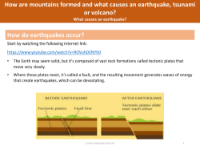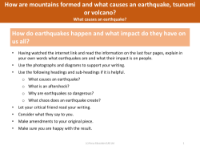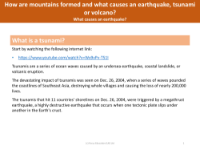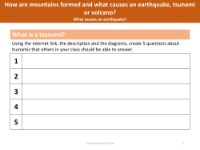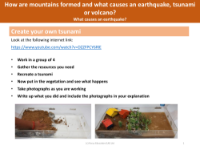What causes an earthquake? - Presentation
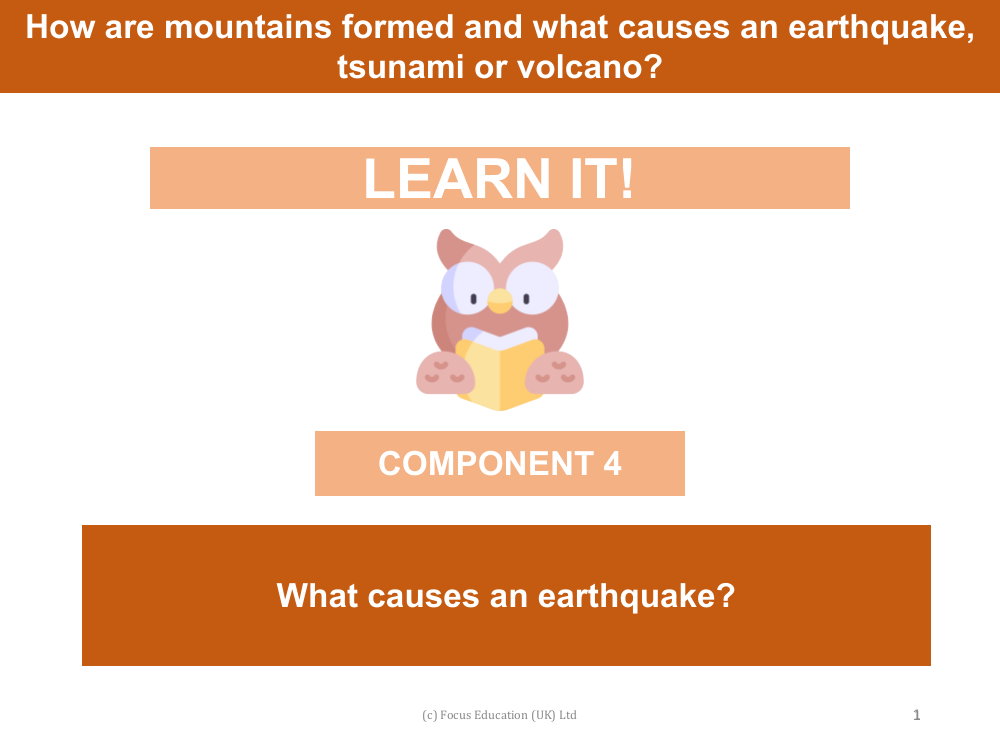
Geography Resource Description
Earthquakes are natural phenomena resulting from the movement of the Earth's tectonic plates. These vast rock formations shift very slowly, but where they meet at fault lines, significant stress can accumulate. When this stress is released, it generates seismic waves that shake the ground, causing an earthquake. The power of these earthquakes is quantified using a magnitude scale, with higher numbers indicating stronger quakes. Despite advancements in construction that allow for earthquake-resistant buildings, these natural events can still result in substantial loss of life, particularly in regions where stringent safety measures are unaffordable or difficult to implement.
Following an earthquake, the dangers are far from over. Aftershocks, which are smaller quakes occurring after the initial event, can further weaken structures that have already been compromised. Additionally, earthquakes can trigger landslides and mudslides, particularly in hilly terrains. The disruption of essential services like electricity, water, and food supplies can lead to disease outbreaks and long-term societal impacts. Although the UK does not experience devastating earthquakes, it still records between 200 to 250 minor quakes annually, with some being perceptible. Understanding the causes and effects of earthquakes is crucial for preparedness and mitigating their impacts on communities.

